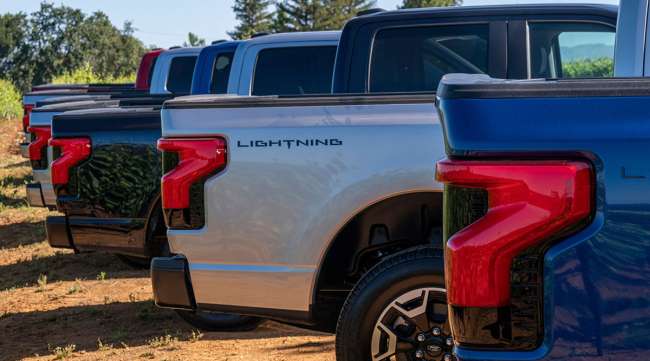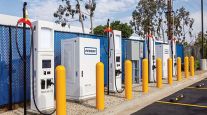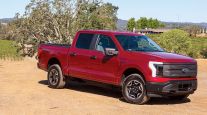Ford Cuts Workforce Making Electric F-150s on Weak Demand

[Stay on top of transportation news: Get TTNews in your inbox.]
Ford Motor Co. said that it would reduce the number of workers making its F-150 Lightning truck as demand for electric vehicles continues to weaken.
About 1,400 employees will be impacted as the Rouge Electric Vehicle Center transitions to one shift beginning April 1, the Dearborn, Mich.-based automaker said Jan. 19 in a statement.
The company said it expects continued growth in global EV sales in 2024, though it will be less than anticipated. Last month Bloomberg reported that Ford would cut production goals for the F-150 EV in half this year.
In a sign that traditional gasoline-powered vehicle demand remains strong, Ford also said that it was hiring nearly 900 new employees and adding 700 employees from its Rouge Complex for a third shift at its Michigan Assembly plant. This will allow the automaker to increase production of Bronco and Bronco Raptor sport-utility vehicles, and Ranger and Ranger Raptor pickup trucks.
Ford said it is balancing production to meet customer demand and CEO Jim Farley said the company still sees “a bright future” for EVs for “specific customers.”
American car buyers have cooled on EVs, balking at the high prices and a spotty charging infrastructure. Ford has responded by repeatedly cutting production of the F-150 Lightning, its signature EV, and the Mustang Mach-E it builds in Mexico. The automaker also downsized by nearly half a battery plant it is building in Michigan and is delaying plans for a battery plant in Kentucky as it pushes back $12 billion in planned spending on electric vehicles.
Want more news? Listen to today's daily briefing above or go here for more info
“It’s pretty clear there’s been some slowdown in EV adoption,” David Lefkowitz, head of consumer equities for UBS Global Wealth Management, said on Bloomberg Television Jan. 19. “We’re getting to the part of the market where it may take a little more effort to penetrate the market.”
UBS has forecast just 11% sales growth in the U.S. EV market this year, down from 47% last year and 60% growth in 2022.
Earlier this week, UBS analyst Joseph Spak cut his rating on Ford to hold from buy over concerns that its EV strategy will be slow to pay off.
“Though we like CEO Farley’s vision and direction for the future of Ford, we believe it could take a number of years for the benefits of those plans to be realized,” Spak wrote in a note to investors.




